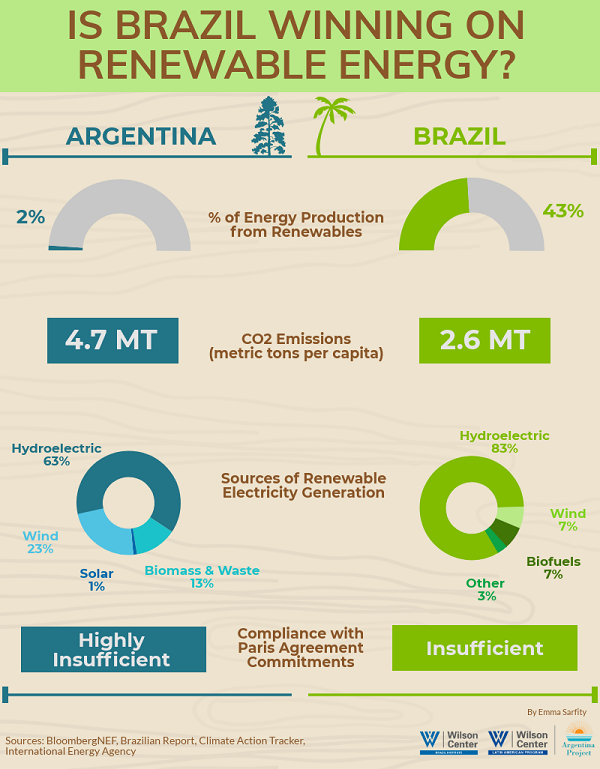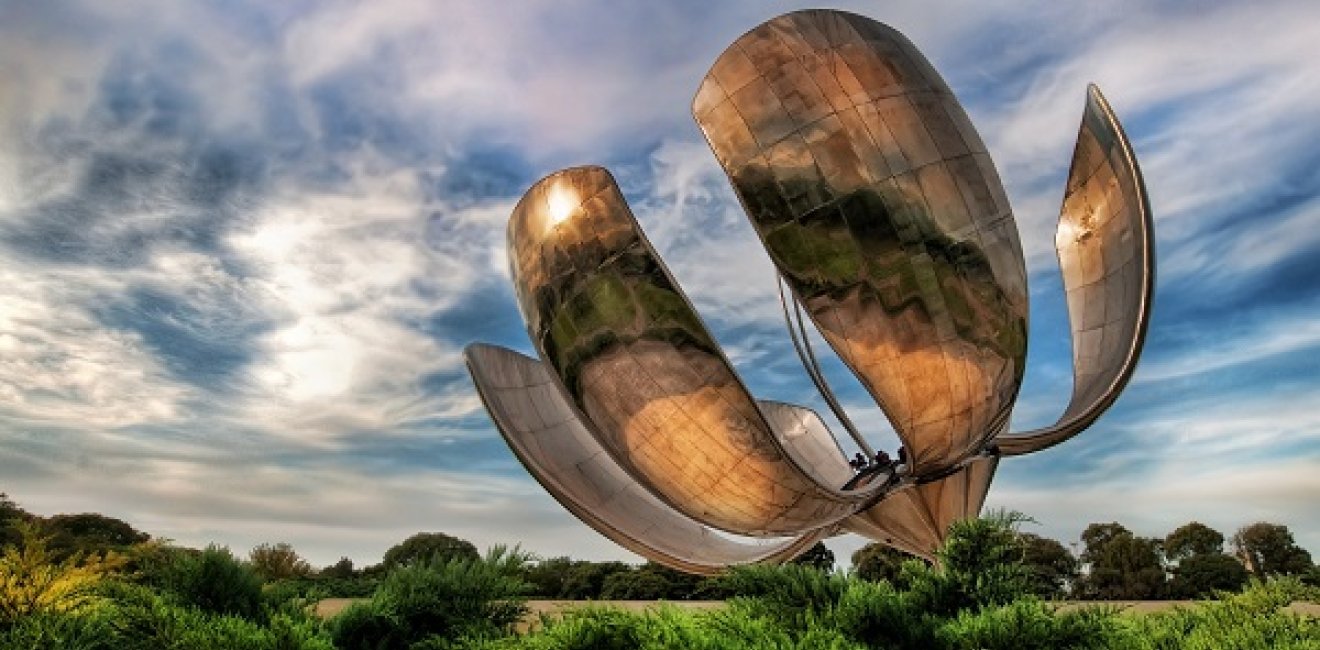
A blog of the Latin America Program
In December, Chile will host the COP 25 climate change summit, where senior government officials will scrutinize one another’s climate change commitments under the Paris Agreement – and their performance fulfilling those goals.
The location of the summit will bring extra scrutiny to Chile and other major Latin American economies, including Argentina.
As part of its 2016 Paris Agreement commitment – known as a nationally determined contribution – Argentina promised not to exceed a 35 percent increase in 2010 emissions by 2030. Argentina was one of a handful of countries to resubmit its NDC pledging further cuts. To fulfill its pledge, President Mauricio Macri shepherded through congress a carbon tax in 2017, which was implemented this year. Mr. Macri also instituted RenovAr, a public-private partnership to attract investment in renewable energy infrastructure. After three rounds, RenovAr has auctioned 147 projects to build up Argentina’s renewable energy capacity. The government says it is committed to doubling energy from renewable resources, from 8 percent in 2008 to 16 percent by 2021.
However, while Argentina says it is eager to tackle climate change, its strategic priorities are inconsistent. For example, Argentina is betting big on the exploitation of fossil fuels, including massive reserves of unconventional oil and gas in Vaca Muerta that relies upon fracking technologies.
Meanwhile, Argentina’s efforts to keep up with its Paris Agreement pledge have proven “highly insufficient,” according to the Climate Action Tracker. Indeed, Argentina is expected to increase emissions by 56 percent above 2010 levels by 2030, complicating global efforts to limit warming to below two degrees Celsius.
Public opinion is not the problem. A 2019 Pew study found that 73 percent of Argentines believe climate change is the top international threat – ranking it above the Islamic State, cyberattacks and global economic troubles. Almost two-thirds of Argentines consider climate change to be “very serious,” according to Vanderbilt University’s Latin American Public Opinion Project. Nevertheless, distractions and the economic downturn have apparently diverted attention and political will from Argentina’s climate policy in the run-up to the COP 25.


Latin America Program
The Wilson Center’s prestigious Latin America Program provides non-partisan expertise to a broad community of decision makers in the United States and Latin America on critical policy issues facing the Hemisphere. The Program provides insightful and actionable research for policymakers, private sector leaders, journalists, and public intellectuals in the United States and Latin America. To bridge the gap between scholarship and policy action, it fosters new inquiry, sponsors high-level public and private meetings among multiple stakeholders, and explores policy options to improve outcomes for citizens throughout the Americas. Drawing on the Wilson Center’s strength as the nation’s key non-partisan policy forum, the Program serves as a trusted source of analysis and a vital point of contact between the worlds of scholarship and action. Read more


Argentina Project
The Argentina Project is the premier institution for policy-relevant research on politics and economics in Argentina. Read more

Explore More in Weekly Asado
Browse Weekly Asado
Dengue Haunts South America’s Summers

Lessons from Costa Rica’s Economic Transformation

Women and Latin America’s Digital Revolution

